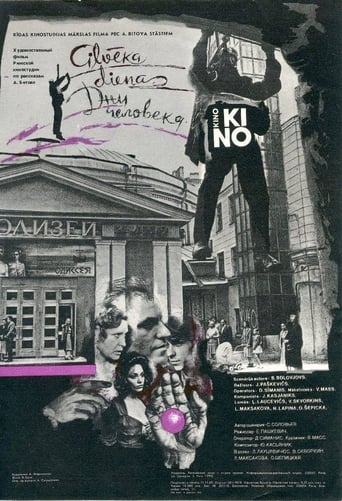"Cilvēka dienas" (1989), produced by Rīgas kinostudija in the Soviet Union, is a poignant cinematic exploration of human existence and resilience. Directed by the acclaimed Latvian filmmaker Aivars Freimanis, the film delves into the life of a man navigating the complexities of Soviet-era Latvia. Through its compelling narrative and stark visual style, "Cilvēka dienas" captures the essence of a society on the brink of transformation, reflecting the broader socio-political changes occurring within the USSR during the late 1980s. The film's protagonist, portrayed with depth and nuance by actor Uldis Dumpis, embodies the struggles and aspirations of many Latvians during this tumultuous period. His journey is marked by personal and professional challenges, set against the backdrop of a nation yearning for independence. Freimanis masterfully intertwines the personal with the political, creating a narrative that resonates with audiences both within and beyond the Soviet Union. "Cilvēka dienas" is notable for its cinematography, which effectively captures the somber mood of the era. The use of muted colors and long, contemplative shots enhances the film's introspective tone, drawing viewers into the protagonist's internal world. This visual approach, combined with a haunting score by composer Imants Kalniņš, elevates the film's emotional impact, making it a memorable piece of Latvian cinema. In the context of Rīgas kinostudija's output, "Cilvēka dienas" stands out as a testament to the studio's commitment to producing films that reflect the cultural and historical realities of Latvia. As one of the last significant works produced before the dissolution of the Soviet Union, the film serves as a powerful reminder of the resilience and spirit of the Latvian people during a time of profound change.
Năm:1989
Thời lượng168 phút
Các quốc gia sản xuấtSoviet Union

